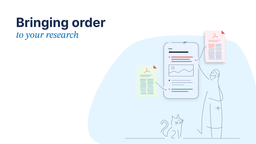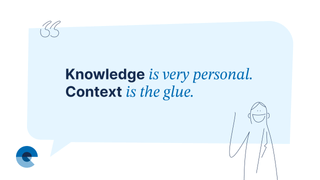In the late summer of 1989, Alan Emtage, a Systems Administrator at McGill University in Montreal, was assigned the job of manually researching FTP servers to find useful software for students and faculty. This process involved sifting through countless unnamed files without descriptions, made even more challenging by the university’s slow internet connection. Recognizing the need for a more efficient solution, Emtage developed a tool that allowed users to search for files by name. Thus, Archie—the world’s first search engine—was born.
The “Anything, Anywhere” Philosophy
This leap in making information more accessible is just another chapter in humanity’s long history of growing and sharing knowledge. Since the days of carving symbols into stone, we’ve sought better ways to store, share, and retrieve knowledge. Libraries organized it. Printing presses multiplied it. But search engines made it widely accessible. And with that, we entered the age of the “Anything, Anywhere” philosophy: the radical idea that any piece of information, from a scientific breakthrough to your neighbor’s banana bread recipe, could be found in seconds. Yet this promise came with a catch.
For with great power comes great piles of… data. The explosion of online information has made research both exhilarating and exhausting. Picture this: You download an exciting new paper, but before you can read it, three more papers land in your inbox. Weeks later, that first file is buried under hundreds of others in a folder ominously titled “To Read.” Multiply this by years of work, and you’re left staring at what can only be called a “mountain of data.”
The Clutter of Digital Research
The reality of modern research is often one of digital clutter. Researchers are not immune to the human tendency to hoard. Entire hard drives buckle under the weight of PDFs, saved “just in case.” Yet, more often than not, those files gather virtual dust, while researchers struggle to find what they actually need. This digital messiness doesn’t just take up disk space—it creates mental clutter. Navigating cryptic file names and endless folders wastes time, distracts our focus, and ironically, slows our productivity with a tool designed to increase it.
But digital hoarding is more than an inconvenience—it’s a creativity killer. Knowledge isn’t just about collecting information; it’s about making connections. When ideas are scattered across devices, cloud drives, and sticky notes, those vital connections are drowned out by the noise.
A Solution to Knowledge Fragmentation
In the face of this overwhelming clutter, Elumity emerges as a solution to the challenges of knowledge fragmentation and information overload. With Elumity, researchers can better store, organize, and process their documents and thoughts, ensuring that real knowledge—the essential information—is not lost in the sea of data.
Elumity’s Cards feature offers a unique approach to building knowledge and insights. The cards allow researchers to link new information to an existing context, transforming fragmented pieces of information into a coherent, interconnected web of knowledge. Instead of reading duplicate information and analyzing data within the silos of PDFs, Elumity’s card was developed to provide a summary of all the different information pieces, highlight the relationships between them, and show how they fit into the bigger picture. For instance, if there are several publications about a new treatment of brain cancer with conflicting results, a card can summarize their results, subgroups, differences in methodology, and other key information, allowing a better understanding of the efficacy and safety of the treatment. This card can then serve as a valuable reference during patient consultations, enabling the doctor to make informed decisions about whether to recommend this treatment to specific patients based on their unique circumstances and needs.
Furthermore, Elumity’s powerful search and annotation tools enable researchers to quickly locate and review critical information, eliminating the need for endless searches through cluttered folders. By consolidating all of a researcher’s materials into one easy-to-navigate platform, Elumity saves time and reduces the stress of managing documents across multiple devices and tools.
The Logical Evolution: Elumity
In many ways, Elumity echoes the revolutionary spirit of Archie, the first search engine invented back in 1989. Just as Archie brought the ability to search and find information more efficiently, Elumity takes this a step further by helping researchers to contextualize and connect a piece of information into the comprehensive personal knowledge repository—like adding a missing jigsaw puzzle piece. Archie was a groundbreaking tool that set the stage for the search-driven world we live in today. Elumity lays a cornerstone in the foundation of a new age of knowledge management.
Knowledge is very personal. Context is the glue. Connecting new information to what we already know enhances our knowledge retention and creates new discoveries and insights. And this is what it’s all about.

